Women in Merton Collections
Along with images of the Virgin and female saints, the medieval fellows of Merton would have been familiar with images of women as personifications of abstract concepts such as the seven liberal arts or virtues and vices. The Latin terms for wisdom (Sapientia) and knowledge (Scientia) were feminine, and they were also depicted as women.
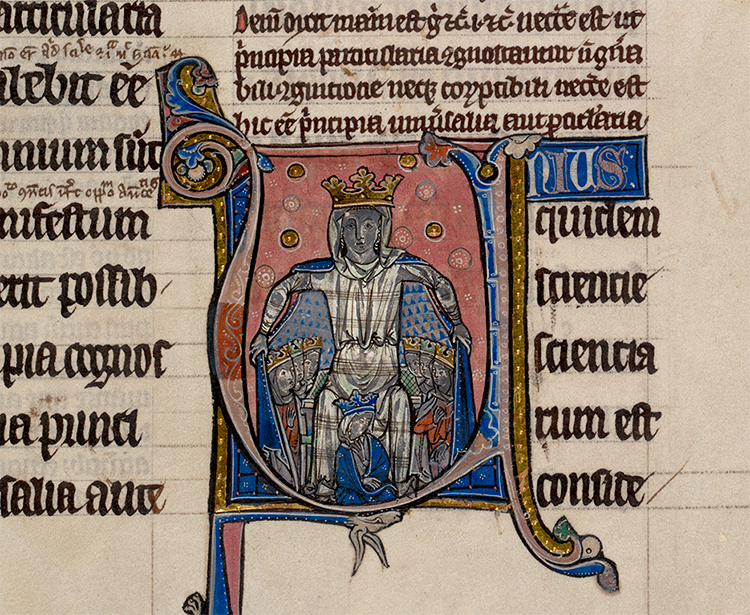
Photography by Colin Dunn (Scriptura Ltd.)
In a 13th-century manuscript of Averroes’ commentary on Aristotle’s Metaphysics the relationship between metaphysics and the other sciences or areas of knowledge is shown by a depiction of a crowned seated woman holding her fur-lined mantle open to shelter seven smaller crowned women. The nearby text that refers to Metaphysics as the Science of all sciences (Scientia scientiarum) provides the key to understanding this image: Metaphysics the mother and protector of the other sciences.
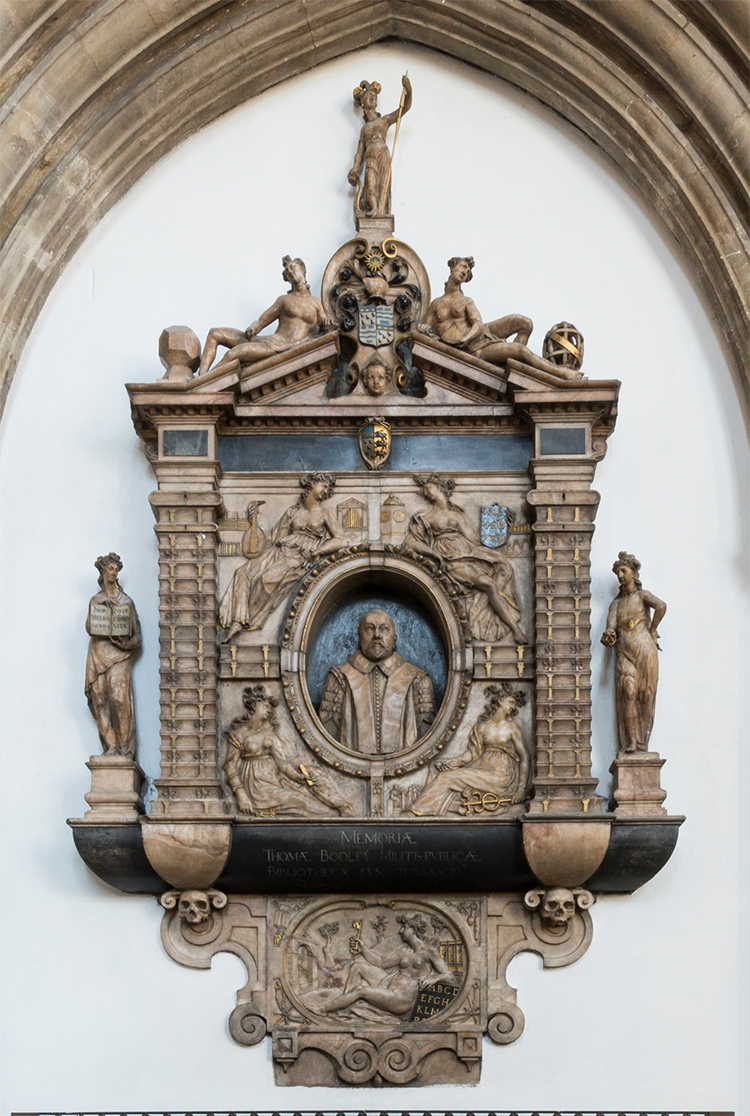
Photography by Colin Dunn (Scriptura Ltd.)
Allegorical women appear elsewhere in college, perhaps most familiarly on Thomas Bodley’s memorial in the chapel. Here Bodley is surrounded by classically-draped female personifications of the seven liberal arts holding attributes that identify them. Grammar, for instance, rests against a tablet inscribed with the alphabet, holding a golden key and gesturing towards the entrance steps of the university library.
When a strikingly beautiful young woman comes to visit her grandfather, the Warden of an all-male college in Edwardian Oxford, what could possibly go wrong? Zuleika Dobson is the heroine of Max Beerbohm’s satiric novel set in ‘Judas College’ – based loosely on Merton. Zuleika is tired of male adoration and determined to love only a man who does not love her. This proves an impossible condition. Over the course of a few days all of Oxford’s undergraduates fall under her spell, and the narrative moves rapidly to a mass suicide in the Isis during the Eights Week boat races.
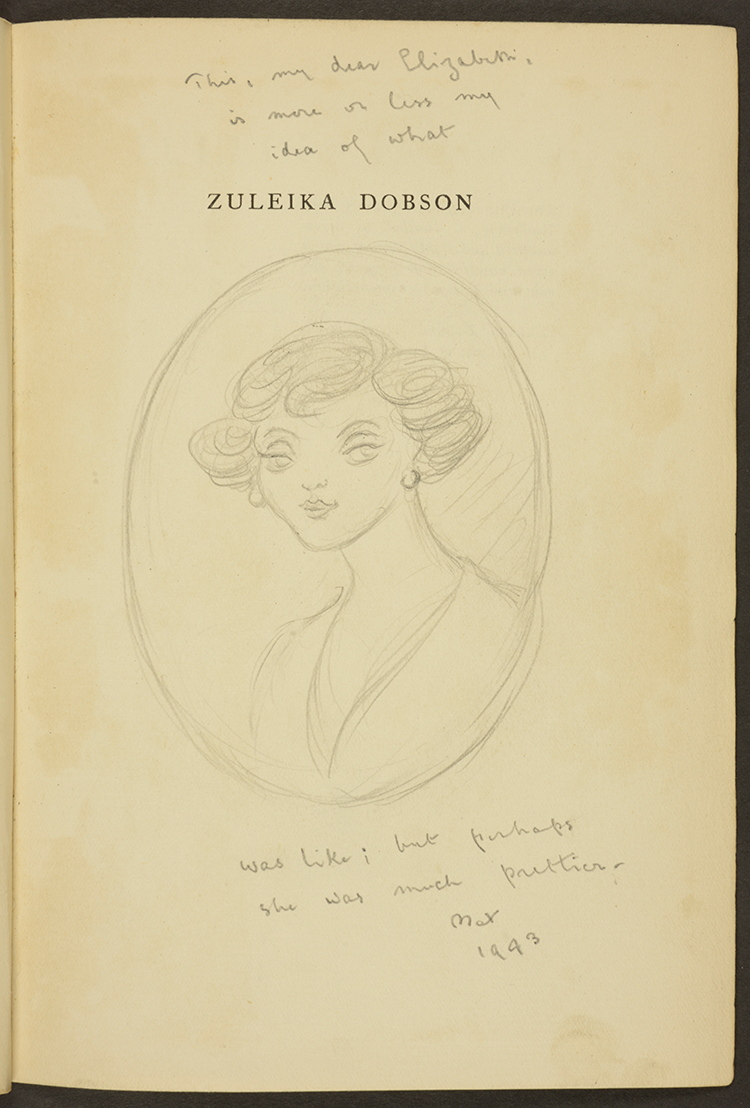
Published in 1911, Zuleika Dobson has remained in print ever since. The Merton Beerbohm Collection includes several copies, including one displayed here, inscribed by the author to Elisabeth Jungmann. Jungmann (1894-1958) first met Beerbohm and his wife Florence in Italy in 1927 when she was working as personal secretary to the German writer Gerhart Hauptmann. Years later, having left Germany to escape persecution, Elisabeth reconnected with the Beerbohms in England. Later, she went to Italy to help Max after his wife died in 1951 and stayed to care for him in the final years of his life. They were married in 1956 shortly before his death. It was Elisabeth’s idea to donate material to establish a Beerbohm Collection at Merton, but sadly she did not live to see it happen. Instead, it was her sister Dr Eva Reichmann who made Elisabeth’s wish a reality. The inscribed volume was donated to the college library in 2019 by the writer and book-lover Pauline Paucker.
Women were active in many roles in producing manuscript and printed books, but their names are often not recorded in the books themselves. The Merton Library inevitably contains books sewn, bound, or decorated by unnamed women. Unusually, Merton also has a small but remarkable special collection relating to an English woman designer-bookbinder active in the first half of the twentieth century: Rosamond Philpott.
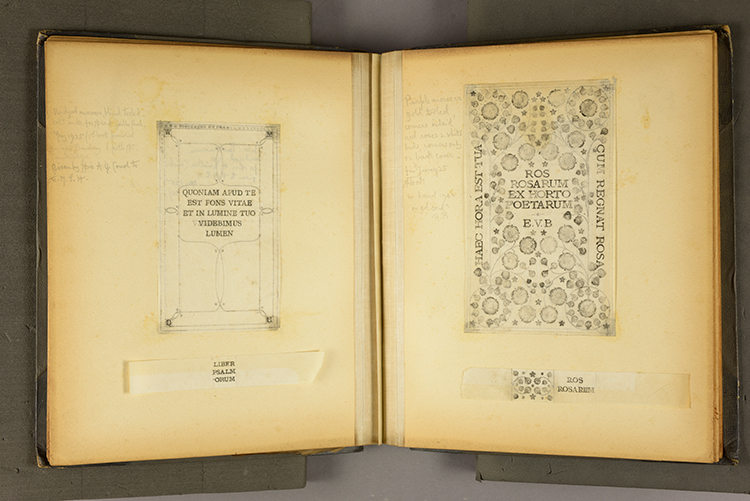
Philpott trained as a designer and binder at the renowned London bindery of Sangorski and Sutcliffe in London in 1904. She exhibited and sold her work, operating her own workshop, the Marygold Bindery in Cambridge, until 1932.
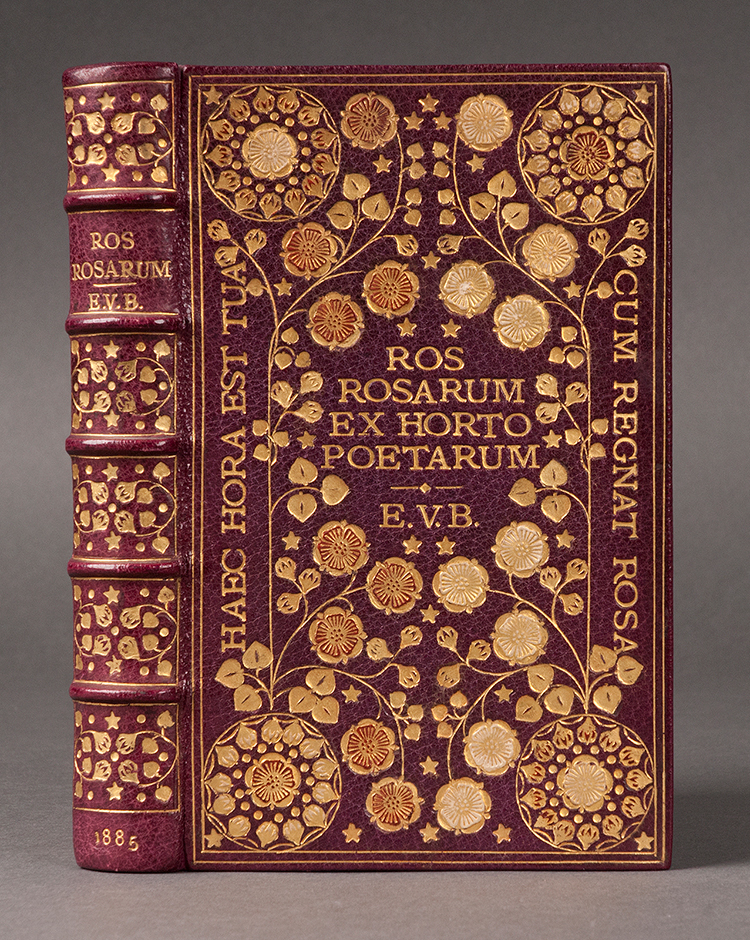
Philpott’s bindings employ floral motifs and fluid symmetrical designs executed in gold tooling in an Arts and Crafts style. The design shown here is dated 1925. By good fortune, the book itself is now in the Lisa Unger Baskin Collection in the David M. Rubenstein Rare book & Manuscript Library at Duke University.